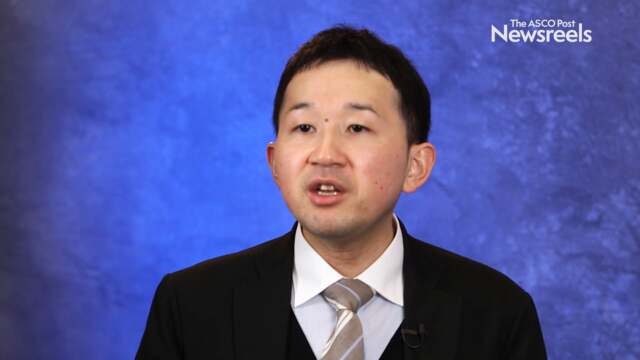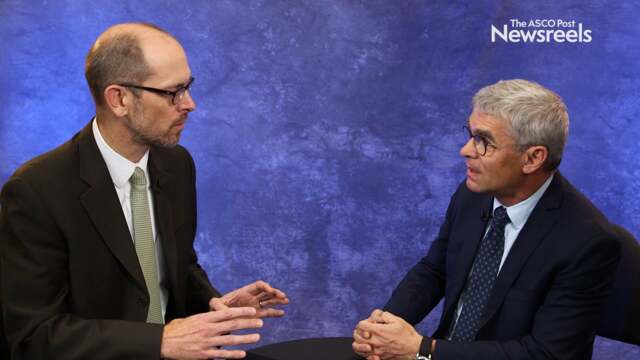Rita Elias Assi, MD, on AML and Genomics
2018 ASCO Annual Meeting
Rita Elias Assi, MD, of The University of Texas MD Anderson Cancer Center, discusses the impact of next-generation sequencing on treatment selection in acute myeloid leukemia (Abstract 103).
Naoki Furuya, MD, PhD, of the St. Marianna University School of Medicine, discusses phase III study findings on a comparison of bevacizumab plus erlotinib to erlotinib in patients with untreated non–small cell lung cancer with activating EGFR mutations (Abstract 9006).
Raymond U. Osarogiagbon, MBBS, of Baptist Cancer Center, discusses a kit used in non–small cell lung cancer resection that improves staging quality and overall survival without adding to morbidity of curative surgery (Abstract 8502).
Courtney Denton Dinardo, MD, of The University of Texas MD Anderson Cancer Center, discusses findings on the durable response with venetoclax in combination with decitabine or azacitidine in elderly patients with acute myeloid leukemia (Abstract 7010).
Michael J. Overman, MD, of The University of Texas MD Anderson Cancer Center, and François Quenet, MD, of the Institut Régional du Cancer de Montpellier, discuss phase III study findings on hyperthermic intraperitoneal chemotherapy for colorectal peritoneal carcinomatosis (Abstract LBA3503).
Apostolia-Maria Tsimberidou, MD, PhD, of The University of Texas MD Anderson Cancer Center, discusses findings on clinical outcomes, including long-term survival, according to the pathway targeted and treatment period (Abstract LBA2553).





